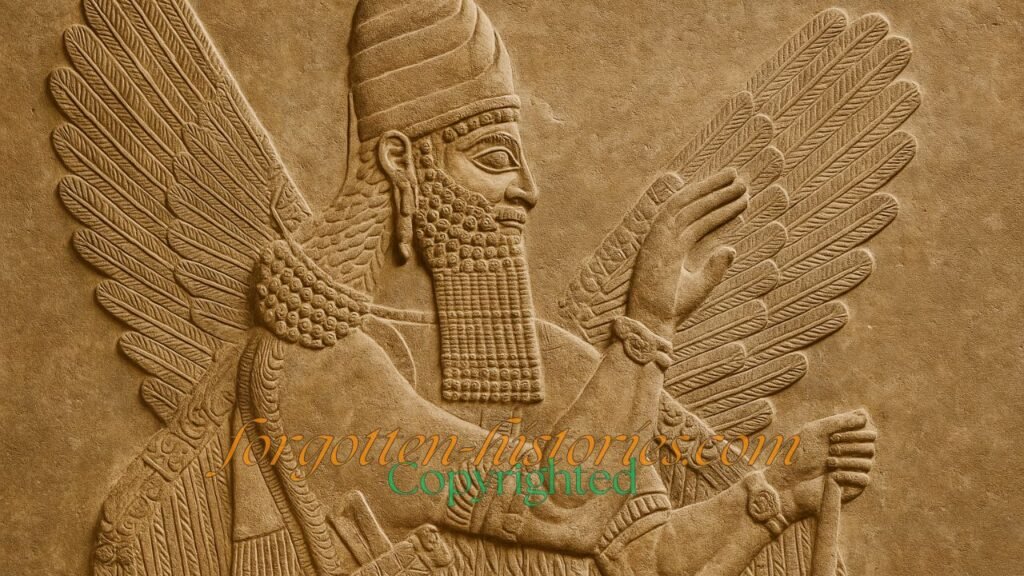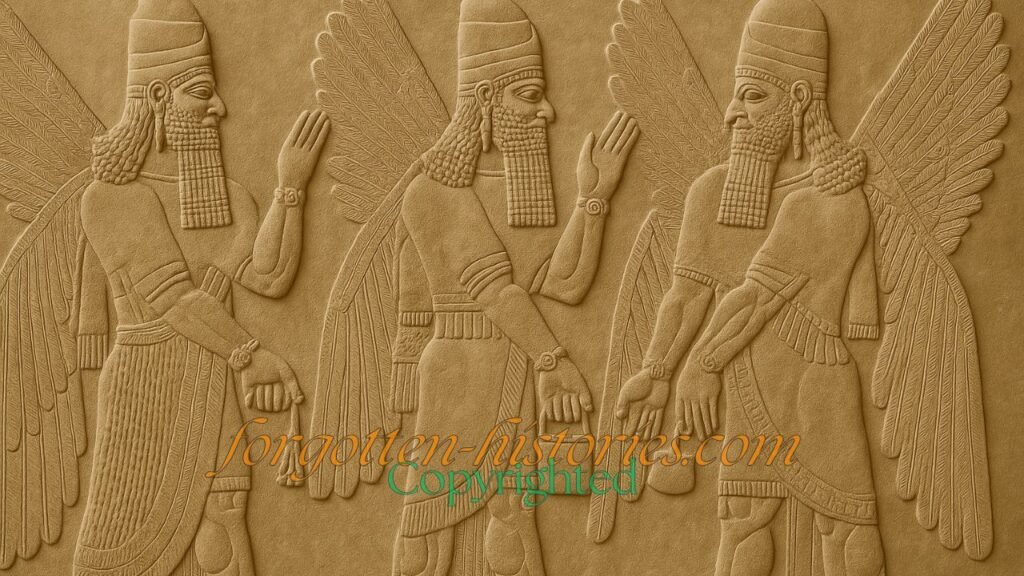
Long before the rise of kings and empires, before the great temples of Ur and the myths of Babylon, gods ruled the heavens and the earth. These powerful beings shaped the world and etched humanity’s fate into clay tablets. Among them stood the Anunnaki, the divine rulers. But hidden in the background were others: the Igigi — a mysterious group of lesser gods whose story remains almost forgotten.
This is their story.
The Toil of the Gods
In the earliest Sumerian and Akkadian myths — especially in the Epic of Atrahasis — the world began not with humans, but with gods doing the hard work. The Anunnaki needed resources. They needed rivers, canals, and fertile land. But they didn’t handle this themselves.
They commanded the Igigi to do it.
The worker gods — countless in number, obedient and strong — labored for thousands of years. They shaped the earth, maintained creation, and followed orders without question. But over time, the work wore them down. Resentment grew. The burden became too heavy.
Then they rebelled.
The First Rebellion

The Igigi gathered in secret. They burned their tools. They marched to the home of Enlil, the chief of the Anunnaki, and surrounded it in protest. The heavens shook with their fury.
Enlil raged.
The Anunnaki council met. What should they do? Wipe out the rebels? Replace them?
Enki, god of wisdom, offered a different solution. He proposed the creation of a new being — one that would take over the labor.
Humans.
The Birth of Mankind
With help from the mother goddess Ninhursag, Enki shaped the first humans from clay. They mixed it with the blood of a slain divine being. This act marked one of the oldest known stories of human creation.
The gods didn’t make us out of love. They made us out of necessity.
We took the place of the Igigi.
What Happened to the Igigi?
After the rebellion, the myths grew quiet about them. Some say the Igigi returned to the heavens. Others believe they stayed on, playing smaller roles among the gods.
In later Babylonian stories, people sometimes used “Igigi” to refer to sky gods — as opposed to the Anunnaki of the underworld. But their original identity as divine laborers who rebelled remains powerful.
They were the first to say “no.”
Why Their Story Matters
The Igigi story is more than ancient myth. It’s a tale of rebellion, exhaustion, power, and purpose. It asks questions that still matter:
- Did the gods create humans as tools?
- What happens when workers resist?
- Can rebellion change the course of history?
These ideas still echo today.
Final Thoughts
The Igigi often fade into the shadows beside the more famous Anunnaki. But they triggered the events that led to humanity’s creation. They were the spark that changed everything.
Next time someone mentions ancient gods, remember the Igigi — the ones who dared to rebel.